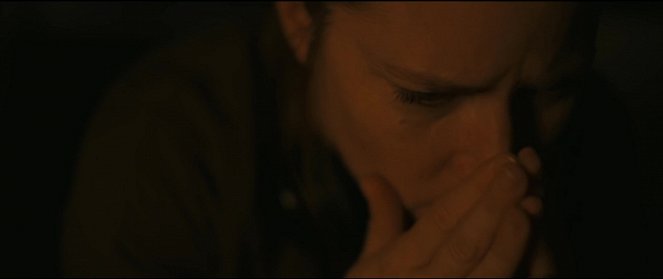Directed by:
Denis VilleneuveScreenplay:
Eric HeissererCinematography:
Bradford YoungComposer:
Jóhann JóhannssonCast:
Amy Adams, Jeremy Renner, Forest Whitaker, Michael Stuhlbarg, Tzi Ma, Mark O'Brien, Joe Cobden, Russell Yuen, Nathaly Thibault, Pat Kiely, Julian Casey (more)VOD (4)
Plots(1)
After mysterious alien spacecraft land on Earth, American linguistics professor Dr Louise Banks (Amy Adams) finds herself working with the army to decode the aliens' communications. Under the command of Colonel Weber (Forest Whitaker), Louise and military scientist Ian Donnelly (Jeremy Renner) try to learn more about the aliens' language so they can communicate with them and discover why they have come to Earth, before someone else across the globe decides to attack first. But with the CIA and global leaders monitoring their interactions, will they be able to make their breakthrough without any unwanted interference? (Entertainment One)
(more)Videos (31)
Reviews (18)
This is the best film in about the last five years. It’s terse, brisk, clever, and in many ways bold. The best thing about it is that the sci-fi storyline is much less important than the personal one. I hardly need to see it 3 more times to appreciate the unique picture-sound interplay and award the editor a couple of golden statuettes. After it was over, I stood in the flying snow, wanting to do a lot of things, but then I realized that the best thing to do was to just let myself drift through the incredible flurry of all kinds of feelings. I've truly been waiting for a movie like this for years.
()
If I were able to think like a heptapod (and if events are not predetermined), I would read Chiang’s short story after watching the film. With knowledge of the original story, the film doesn’t manage to be surprising with respect to what it aims for from the beginning and what it so much relies on to its own detriment. ___ Whereas Chiang gets straight to the point, Villeneuve understandably dedicates much more space to exposition. The first encounter is thus preceded by a comically long “build-up”, during which the protagonists fly in a helicopter to Montana, put on protective coveralls, drive to an enormous spaceship, climb onto a lifting platform, ride the lifting platform (because we would be deprived of one dramatic ride if the platform stood directly below the opening) and walk into the bowels of the ship. The only function of this procedural porn is to prepare us for an essential and epic reveal which, however, doesn’t happen, because all we learn from it is what the aliens look like. The individual steps leading up to the act of communication don’t play any more of a significant role later. For me, the entire film was such a similar unfulfilled promise as the scene described above. ___ The long and slow opening sequence is also unsatisfying in introducing protagonist, whose actions throughout the rest of the film can probably be explained by the fact that she lives alone and compensates for her poor personal life with work (she is the only one who goes to school even when the rest of the world is experiencing an alien visitation). Many of the informative dialogue scenes, flashbacks with the child and the scene in which Louise translates a conversation in Chinese so that we know she also speaks Mandarin, feel similarly utilitarian and inorganic. The coldly engineered approach to the characters, who remain mysteries like the alien logograms until the end of the film, wouldn’t matter so much if it wasn’t in conflict with the melodramatic level of the narrative, which is based on the relationships and motivations of the protagonists and becomes dominant in the end (I consider the replacement of an accident, which perhaps could have been prevented, with an incurable disease, which can only be accepted as an inevitability according to melodramatic conventions, to be quite essential). ___ In the short story, a theory that is partially revealed is continuously applied to a universally comprehensible story whose main purpose is to make the heptapods’ way of thinking comprehensible. The aim is thus not to move the reader, but to help them understand how “it” all works. Conversely, the newcomers attempt to offer emotional rather than intellectual satisfaction, but they’re not very successful. However, Arrival is still a skilfully made sci-fi movie about the importance of (mis)understanding, though it is too reminiscent of Interstellar due to its expository dialogue, extremely serious tone and cold visual style, but I wasn’t as impressed with it as I was with the short story. Among other things, that is due to how doggedly it tries to astonish the viewer. Postscript: If the solution presented by the film for reuniting a divided world is the only one possible, then we’re pretty much fucked. 70%
()
(less)
(more)
The perfection of form, where every flyover, orbit, or simply a view of the elegance of anything is a visual fairy tale, won me over after a few minutes. I realized that Amy Adams is playing the role of her life right from the prologue. But I still remained sober, I still anxiously waited to see exactly how those touching family scenes would connect with the archetypal sci-fi plot, and until the very last moment, I didn't believe that they wouldn't appear as randomly thrown together elements. They didn't. Instead, Denis Villeneuve proves that he can cross genres in a Christopher Nolan-esque way, escalate tension, and share with us exhaustive spectator experiences that leave me so exhausted that I can't believe Arrival is really just a movie. Personal.
()
Lethal Contact. In the past, many giants of the silver screen have tried to convey space, time, size, relativity or being that go beyond the perception through the movie: from Kubrick, Mallick or Zemeckis to Nolan. Sometimes more or less successfully and sometimes absolutely ridiculously. Villeneuve is one of them. Also more or less successfully. The movie tries to use a smart and refined construction (to the extent that it is more interesting in what topics it describes than in the story it tells), a tangible subliminal tension and, above all, an intimate melancholic personal line that would like to raise emotions. And this is exactly the problem to some extent, because in the end it is cold and depersonalized, despite all the efforts. Although stylistically cool and depersonalized, but with regard to what emotions it is trying to raise, there is a noticeable contradiction in that. And even if it's about something completely different, what is a big letdown is that the linguistic line faded away extremely fast. Especially when the original went much further in this respect (Fermat's principle, etc.). SPOILER-like PS: I'm quite surprised that the movie doesn't follow the tradition of Czech and foreign movies and doesn’t immediately reveal the plot by using rather dramatic title à la "Memories of the future" or something similar.
()
The Americans have finally decided to shoot a narrative sci-fi movie that, even though it’s lacking action, can still leave such a mark on the sci-fi genre that you’ll never be able to forget it. It even has innovative ideas and premises that aren’t cliché and they’re not based on a brand, unlike the comics movies industry. Arrival is a filmmaking triumph of the year. Not only does it come up with an interesting thought, it also turns it into a whole array of original ideas. For example, for a whole hour and a half, I thought that I was keeping up, but then in the last half an hour, I was completely lost and I had to keep thinking about the movie for the rest of the evening. That hasn’t happened to me in a long time and I’m always glad when it does. I think Denis Villeneuve is one of the most essential American (Canadian) contemporary filmmakers. Plus, I must thank Jóhann Jóhannson, the master of minimalism, for being extraordinary once again and choosing Max Richter to compliment his non-music. As I was saying, a movie that is genius as far as the idea goes, but also the production’s ration of sound to visuals, thus meeting all the requirements for high-quality science fiction.
()


